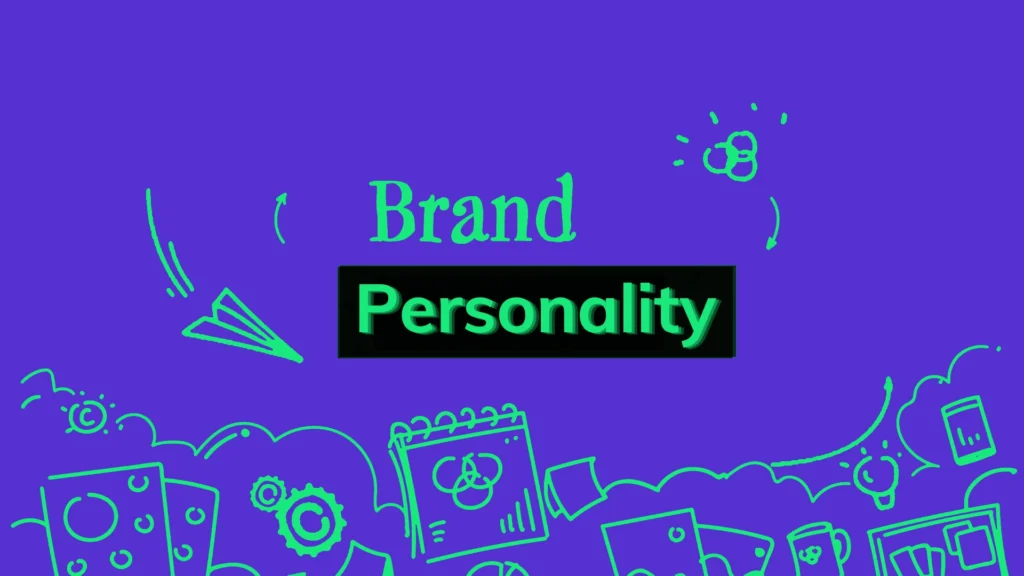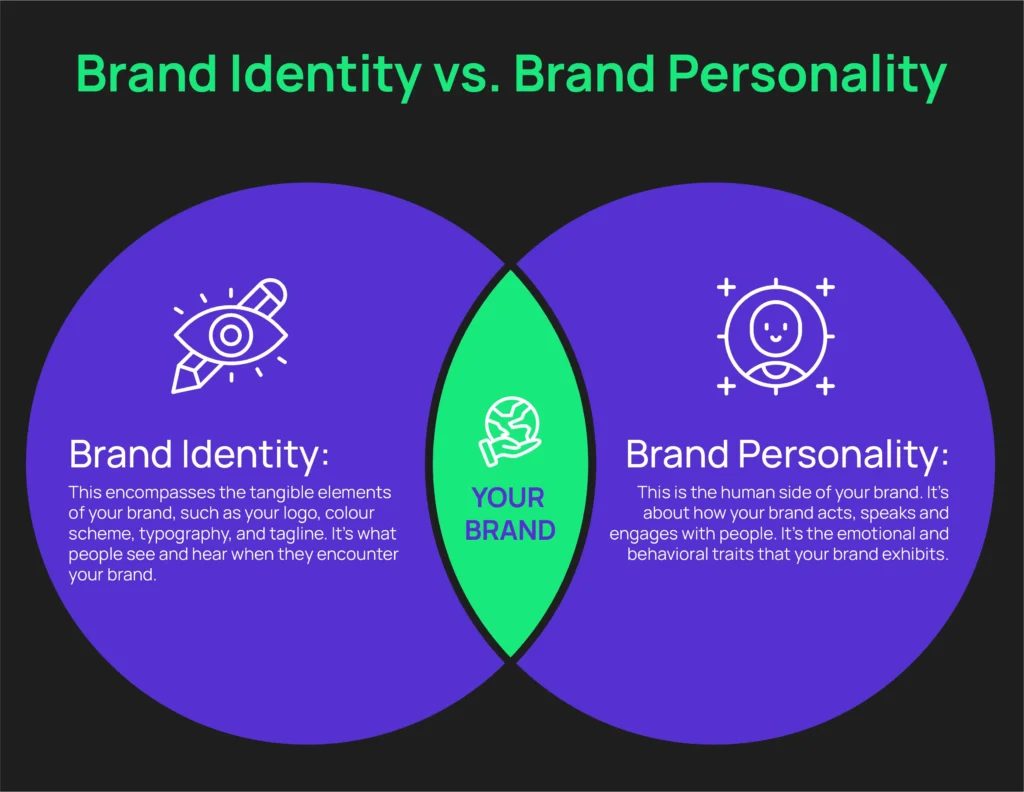In an era of endless choices and fierce competition, brands are no longer just sellers of products or services. They are storytellers, companions, and even personas that consumers resonate with on a deeper level. This is where brand personality comes into play. At its core, brand personality allows a business to project human-like characteristics, giving it a unique identity and emotional appeal that audiences can connect with.
Unlike logos or color schemes, which form part of brand identity, a brand’s personality shapes how it behaves and interacts with its audience. It’s the humor in your favorite advertisement, the reassurance you feel when you see a familiar brand logo or the excitement associated with an innovative campaign. According to research by Sprout Social, 64% of consumers say shared values are the primary reason they connect with a brand. This makes having a clear and relatable brand personality more critical than ever for businesses aiming to thrive in a competitive landscape.
This guide delves into what brand personality is, why it’s essential, and how it differs from brand identity, along with actionable insights into creating a compelling brand personality framework. Through real-world examples and data, we’ll also explore how top companies leverage personality to create meaningful consumer relationships.

Brand personality is the set of human characteristics associated with a brand. It gives life to your brand, making it relatable and memorable to your audience. These traits influence how consumers perceive your business and how they interact with it emotionally. For example, a luxury brand like Chanel may be seen as sophisticated and elegant, while a company like Red Bull projects excitement and energy.
The concept of brand personality stems from the idea that consumers relate to brands in the same way they do to people. When a brand consistently expresses characteristics like friendliness, reliability, or innovation, it begins to form emotional bonds with its audience. Research published by the Harvard Business Review found that brands with strong personalities enjoy up to 37% higher customer loyalty than those without.
Brand personality goes beyond the functional benefits of a product or service. It is about building emotional value. For instance, Nike’s brand personality of determination and empowerment inspires its audience to strive for greatness, fostering a deeper relationship than a mere athletic gear provider.
Establishing a strong brand personality is vital for several reasons:
Brands that exhibit relatable traits can establish deeper emotional connections with consumers. For example, Dove’s personality revolves around authenticity and self-acceptance, which has enabled it to resonate with individuals on a more personal level. Emotional connections significantly impact purchasing behavior, with 89% of consumers saying they remain loyal to brands they feel emotionally connected to.
In a crowded market, a unique personality differentiates a brand from its competitors. Think about how Tesla’s innovative and futuristic personality sets it apart from traditional automakers. A brand personality acts as a point of distinction that helps customers remember and choose your brand over others.
A consistent personality builds trust. Customers know what to expect when they interact with your brand, fostering long-term loyalty. A survey by Edelman Trust Barometer revealed that 81% of consumers need to trust a brand before making a purchase decision.
With a defined personality, all brand messaging from advertising to social media posts becomes more consistent and aligned. This unified tone of voice helps reinforce your brand’s identity in the minds of consumers.

While both brand identity and brand personality play crucial roles in shaping a brand, they address different aspects of how a brand operates and is perceived.
Brand Identity is the visual and tangible representation of a brand. This includes its logo, typography, color palette, and design elements that customers can see and recognize. For instance, Coca-Cola’s red-and-white branding has become instantly recognizable worldwide.
Related: How Important Are Colors In Your Logo Design?
Brand Personality, on the other hand, is how the brand feels and behaves. It’s the emotional and human side of the brand that consumers connect with. A great example is Harley-Davidson, whose rugged and adventurous personality resonates with its audience, embodying freedom and rebellion.
Together, brand identity and personality work in harmony to create a cohesive brand image. Identity is the “what,” while personality is the “who.” For a brand to succeed, these elements must complement each other.
Building a strong brand personality requires a strategic approach. A brand personality framework ensures consistency and alignment across all customer interactions. Here’s how to develop one:
Knowing your target audience is the first step. Conduct research to uncover their demographics, preferences, and pain points. For example, a Gen Z audience might respond better to a playful and humorous personality, while a corporate audience might prefer professionalism and sophistication.
Your brand’s core values should serve as the foundation for your personality. If your values center on innovation, creativity, and sustainability, your personality traits should reflect these qualities.
Select human traits that align with your brand’s purpose. Common traits include sincerity, excitement, competence, sophistication, and ruggedness. According to a study by Jennifer Aaker, these five dimensions form the foundation of most brand personalities.
Every touchpoint, be it your website, packaging, or social media presence; should consistently reflect your brand personality. For instance, a brand with a playful personality might use casual language and vibrant visuals, while a serious brand might focus on professional tone and muted colors.
Real-world examples highlight the power of brand personality:
These brands demonstrate how well-defined personalities can elevate a brand’s appeal and foster deeper customer connections.
A brand personality statement defines the traits and characteristics that describe a brand’s persona. It serves as a guiding framework for how the brand communicates and behaves.
Brand personality refers to the emotional and human traits of a brand, while brand identity encompasses its visual and tangible elements, like logos and colors.
Consumers are more likely to remain loyal to brands they feel emotionally connected to, as brand personality fosters trust and relatability.